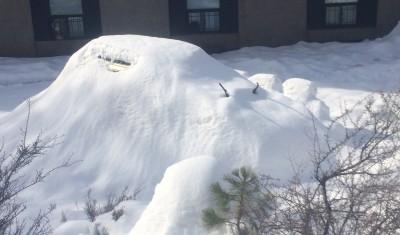You’re in college and you don’t take the bus to school anymore, so why do you still get snow days? The process is very different at Central Oregon Community College.

“The first thing we look at is the highways and the routes getting to campus,” said Ron Paradis, director of College Relations at COCC. “We look at how safe it is for cars to be able to get to campus, park and leave campus.”
During the average year, COCC does not close for a full day; instead, a two hour delay or early closing of campus is enacted if necessary. The goal is to always have campus ready to be open, according to Paradis.
COCC has different criteria than the local school districts for calling a snow day. While the school district makes their decisions based on whether or not their buses can run, COCC bases their decision on the safety of students on campus and the main roads, according to Paradis.
When the roads have wet snow and slush, and the temperature is dipping low, that is when campus is closed early. This is because when the slush freezes, it makes the roads very dangerous to travel on, according to Paradis.
The final decision regarding the status of school being canceled or delayed falls to Matt McCoy, vice president for administration at COCC.
“We use many sources to determine whether or not to issue a closure,” McCoy said. “These include the city, county, first responders and multiple weather prediction sources. We have eyes and ears in all locations surrounding COCC campuses.”
Students can sign up to be alerted by the Emergency Notification System by logging onto their Bobcat account and choosing whether they want to be alerted via phone call, text, email or all of the above.
The office of college relations also makes every effort possible to notify local media with an informed decision as much in advance as possible, according to McCoy.
Rosalinda Corning
The Broadside
[email protected]







